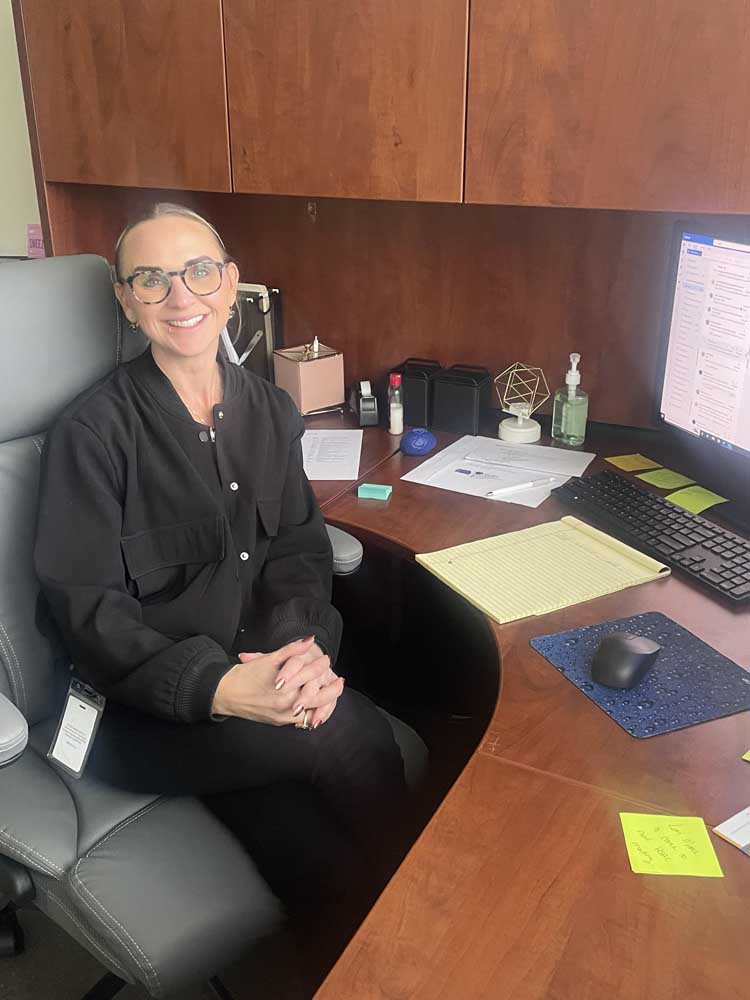Behind the News: ‘Housing is a critical element of people’s mental health’
Published 12:30 am Saturday, November 23, 2024

- Shyra Merila is executive director of Clatsop Behavioral Healthcare.
Housing has become critical to the mission of Clatsop Behavioral Healthcare.
Clatsop County’s mental health and substance abuse treatment provider recognized several years ago that the lack of housing options in the region is a barrier for people who need help.
The Warrenton-based agency has created supportive housing in Astoria, Warrenton and Seaside. A supportive housing project with more than 30 units for low-income residents with mental health issues is planned off W. Marine Drive in Uniontown.
Shyra Merila, the new executive director of Clatsop Behavioral Healthcare, describes supportive housing as “a game-changer in our industry.”
“Housing is a critical element of people’s mental health, and supportive housing is something that we will continue to advocate for and be invested in,” she said.
Merila was the deputy to Amy Baker, who was chosen by Gov. Tina Kotek for the statewide role of behavioral health initiative director. She has strong local ties — she was a volleyball and track star at Astoria High School — and previously led clinical operations at the agency.
In an interview via Zoom, Merila discussed some of the behavioral health policy issues facing Oregon.
Q: What do you see as the biggest challenge facing Clatsop Behavioral Healthcare?
A: One of our biggest challenges is housing for our staff. This is an organization that’s critical to the community, and our employees can hardly afford to live here.
I have many employees that live in Long Beach and Ocean Park across the river and drive across the bridge, rain or shine, assuming they can make it.
So that’s a huge issue.
Q: Over the past several years, Clatsop Behavioral Healthcare has expanded services in the region through the rapid access clinic and supportive housing. What have you learned about crisis response from the rapid access clinic so far?
A: The services that most people are needing when they come in to get care at the rapid access clinic — sometimes it’s de-escalation and stabilization, but often people’s challenges are just related to getting their basic needs met in this community.
The percentage of sort of organic mental health conditions that are hereditary like schizophrenia and bipolar disorder is actually pretty small in comparison to the number of people experiencing mental health conditions because they’re homeless, or because they have food insecurity, or just simply because Clatsop County is an exceptionally expensive place to live.
Q: I know supportive housing is still a work in progress, but what have you learned so far?
A: That it’s a game-changer in our industry, and that we need more of that to help people live well here.
Housing is a critical element of people’s mental health, and supportive housing is something that we will continue to advocate for and be invested in.
Q: The state Legislature rolled back Measure 110, which decriminalized possession of small amounts of illicit drugs. The new law steers people caught with small amounts of drugs into treatment as an option. How ready are we in Clatsop County for this shift?
A: I think probably more ready than the majority of the state.
Clatsop County is a leader right now in the development of our deflection program. The strong team working on that, which includes county leadership, the sheriff’s office, CBH, local law enforcement — we already have five clients who are active in the program and are seeing really positive treatment outcomes.
Q: The Commitment to Change work group made several recommendations around behavioral health to the state Legislature for the next session. I know there are some disagreements about whether the state should make it easier for judges to order civil commitments for people who are a danger to themselves or others. We have had a few tragic cases in Clatsop County that probably could have been avoided had people been committed before they acted out. Where do you fall in this debate? Should it be easier?
A: Yes — and that means that there needs to be more treatment capacity.
It being easier to commit people doesn’t get us anywhere if we don’t have the right resources to treat people with the mental health services that they need.
I do think that we need to be looking at how substance use is impacting people’s ability to care for themselves, and potentially putting themselves at risk, and potentially putting other people at risk.
Currently, you can’t commit someone for their substance use. You can’t commit someone to care because they’re addicted to meth and they’re making poor decisions and they can’t take care of themselves.
I think with the increase of the lethality and sort of the intensity of substances that we’re seeing right now in our community, that that’s something that needs to be considered.





